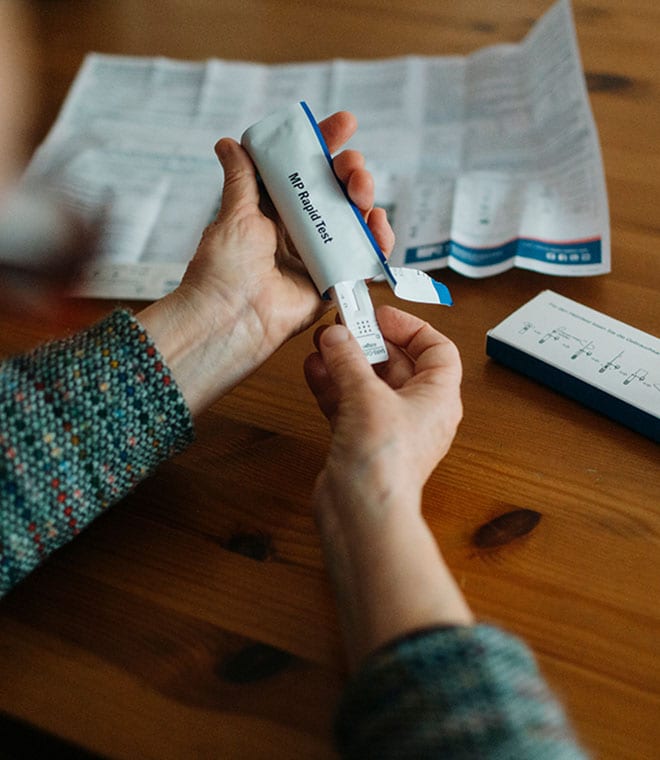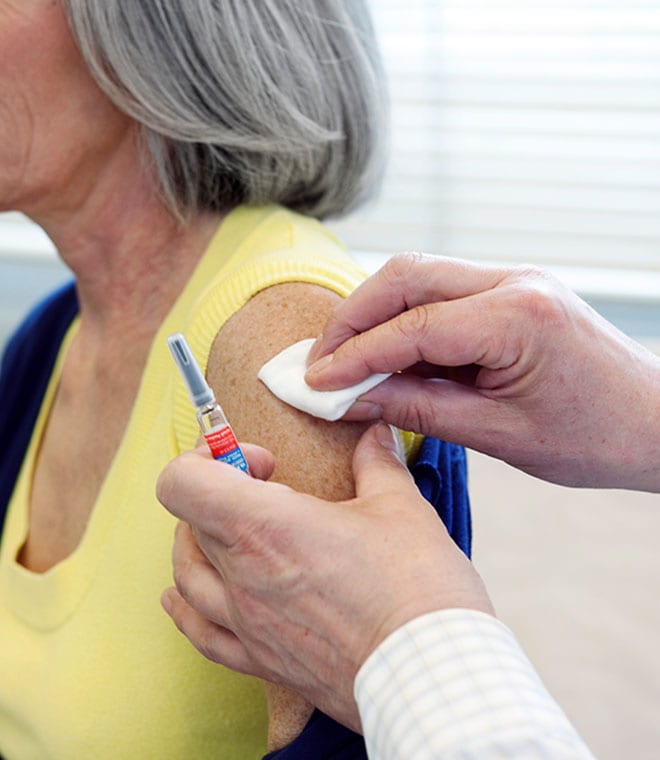Health
Kids and the flu: What to do
By Andy Stergachis, PhD, BPharm Sep 11, 2023 • 2 min
Kids are one of the most at-risk groups of people for getting the flu. Nearly 20,000 children under age 5 are hospitalized each year because of flu-related complications, according to the Centers for Disease Control and Prevention. The best way to protect children from the flu is to get the flu vaccine each year, although the flu vaccine is not recommended for babies 6 months old or younger.
Why are children at a high risk for the flu?
The immune system, the body's defense against infections, is not yet fully developed in children, which makes the age group more prone to infections. Children also don't always properly cover their mouth and nose when coughing or sneezing, which can cause them to spread germs to others more easily. Infants and toddlers often use their hands to wipe their noses or rub their eyes and then touch toys or other kids.
How do I know if my child has the flu?
Flu symptoms in children may differ from those in adults. Kids are more likely to have nausea, stomach pain and/or vomiting with the flu. Other flu symptoms may include:
- A fever or feeling feverish (not everyone with the flu has a fever)
- A cough and/or sore throat
- A runny or stuffy nose
- Headaches and/or body aches
- Chills
- Fatigue (feeling very tired)
- Nausea, vomiting and/or diarrhea
How to care for a child with the flu?
If your child has flu-like symptoms and is younger than 5 years old or has any chronic medical conditions, call a doctor as soon as possible. Your doctor might prescribe an antiviral medication to help ease your child's symptoms.
Follow these instructions when caring for children and infants with the flu:
- Do not give children aspirin (acetylsalicylic acid). This can cause a rare but serious illness called Reye's syndrome. Read ingredient labels on over-the-counter medications with care to make sure they do not contain aspirin.
- To safely treat children under age 2, try using a suction bulb to help clear mucus if your child tolerates it, or a cool mist humidifier to make breathing easier. A humidifier can be placed next to a child’s bed at night in order to ease congestion and help with sleep.
- Do not give children younger than age 4 over-the-counter cold medicines without talking to a healthcare provider.
- Acetaminophen (Tylenol) and ibuprofen (Advil, Motrin) can help lower fever in children. Your healthcare provider may tell you to give your kids both types of medicine.
- Before giving your child OTC medicine, check the dosing chart on the label to determine the correct dosage based on your child’s weight.
You should get medical attention right away if your child is:
- Breathing fast or is having trouble breathing
- Not drinking enough fluids
- Vomiting persistently
- Not waking up or interacting
- Irritable and does not want to be held
- Showing flu-like symptoms that improve but then return with fever and more severe cough
- Developing flu symptoms, including a fever and/or cough, and has other health conditions
In infants, watch for the signs above, as well as inability to eat, trouble breathing, no tears when crying or significantly fewer wet diapers than normal.
Flu vaccines offer the best protection
Vaccination is the best protection against the flu. Although flu vaccines are not recommended for children younger than 6 months, babies this young are at a high risk of serious flu complications. By vaccinating adults and children older than 6 months, you are protecting newborns and infants who are too young to get vaccinated.
Andy Stergachis, PhD, RPh, is the director of the Global Medicines Program at the University of Washington in Seattle and a subject expert on public health and pharmacy-related topics.
Clinically reviewed and updated September 2023.
Sources:
- https://www.hopkinsmedicine.org/health/conditions-and-diseases/influenza/influenza-flu-in-children
- https://www.cdc.gov/flu/highrisk/children.htm
- https://www.health.harvard.edu/blog/what-to-do-if-you-think-your-child-has-the-flu-2019013015882
- https://www.ninds.nih.gov/Disorders/All-Disorders/Reyes-Syndrome-Information-Page
- https://www.healthychildren.org/English/safety-prevention/at-home/medication-safety/Pages/How-to-Manage-Colds-and-Flu.aspx



